Mandy Barker is an international award-winning photographer whose work involving marine plastic debris has received global recognition. Working with scientists she aims to raise awareness about plastic pollution in the world’s oceans whilst highlighting the harmful affect on marine life and ultimately ourselves. Her work has received global recognition and has been published in over 25 countries.
Beyond Drifting: Imperfectly Known Animals
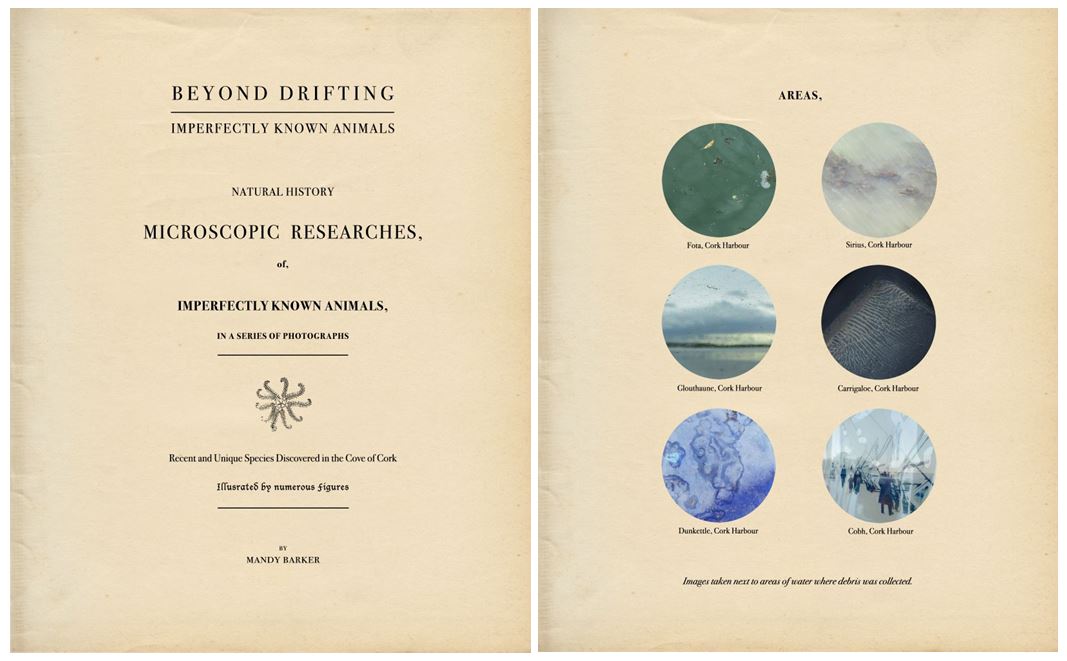
Enough plastic has been manufactured since the end of the Second World War to coat the entire earth in plastic wrap. No part of the planet is free of plastic waste; the total amount of plastic produced since 1950 is around 5 billion tons (close to the weight of the entire human population at this moment). This amount is very likely to reach 30 billion tons by the end of the century.
Presented as microscopic samples, objects of marine plastic debris mimic Thompson’s early scientific discoveries of plankton. Barker’s series is conveyed through an antique-like science book—mimicking the past while reflecting on the current situation regarding organisms’ intake of plastic. The book subtly includes the original writing, descriptions, and figures recorded by Thompson in his research memoirs from 1830, entitled Imperfectly Known Animals.
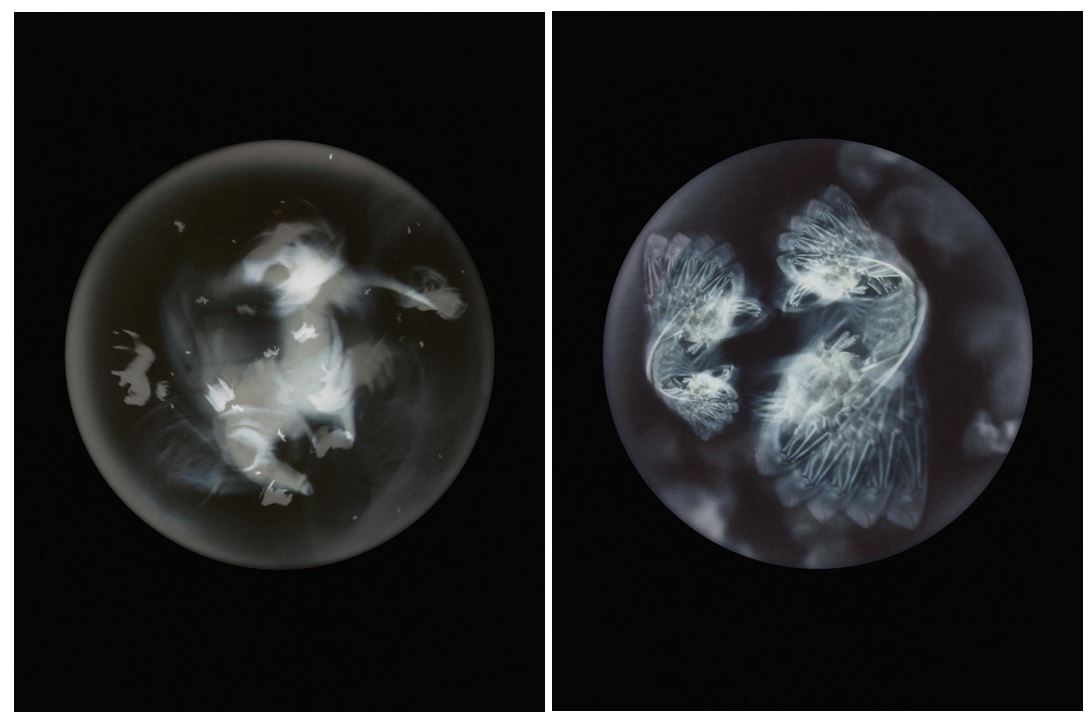
The work examines the degradation and contamination of plastic particles in the natural environment through the lens of scientific discovery, while also looking at the organisms when they were free from plastic (and when we, as humans, were free of plastic as well). The images, shot in an enveloping black space, evoke the deep oceans beneath.
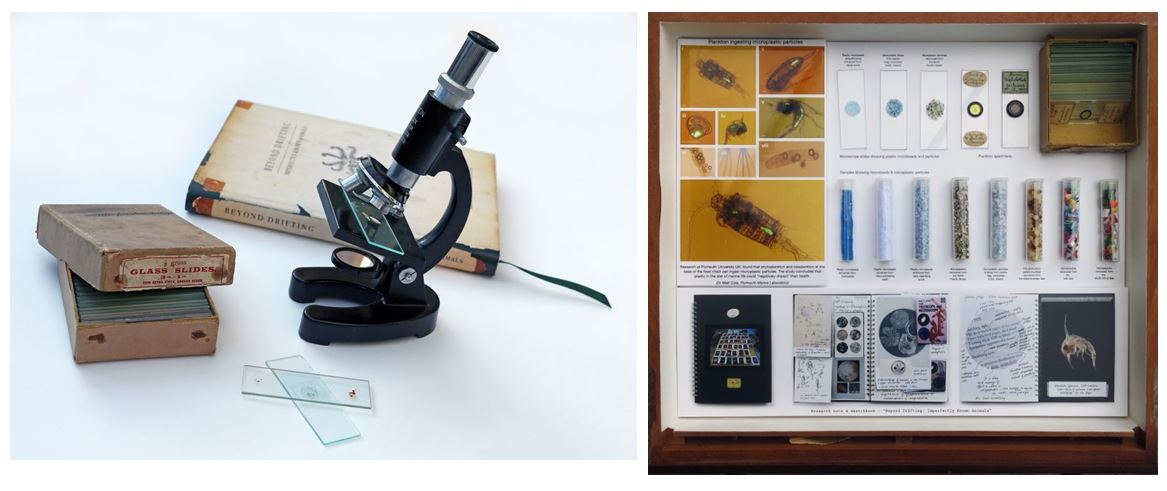
Installation drawer -An original antique specimen drawer highlights the connection with plastic, showing images of plankton ingesting plastic particles with research book spreads. Microscope slides and test tubes show samples of plastic particles recovered from oceans around the world, with micro beads collected from toothpaste and facial scrubs.
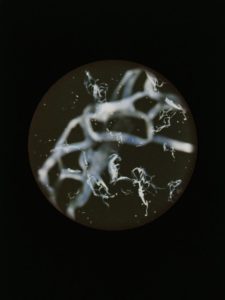

https://mandy-barker.com/project.php?gallNo=9
https://www.lensculture.com/mandy-barker?modal=project-314878
Indefinite by Mandy Barker Blurb:

 ‘Discarded debris found along the shore and having existed for varying amounts of time in the sea collectively convey a message about the marine environment. The images combine visual beauty with the message of pollution and the time it takes them to biodegrade in the sea. The book shows the series of 10 images representing an intuitive collection of objects as they were presented, on the shore, unwashed and unaltered and aiming to reveal a beauty not otherwise noticed. The form and shape of the objects take on the imaginative appearance of sea creatures, created from the very materials that prove fatal for the creatures themselves. Enveloping black space evokes a deep sea, presenting the emerging objects as creatures from beneath, whilst at the same time serving as a metaphor to the unknown depths of this vast global problem of pollution. The captions state only the number of years it takes each material to decompose, thus revealing a narrative in time, and ending with the indeterminate and Indefinite material polystyrene.’
‘Discarded debris found along the shore and having existed for varying amounts of time in the sea collectively convey a message about the marine environment. The images combine visual beauty with the message of pollution and the time it takes them to biodegrade in the sea. The book shows the series of 10 images representing an intuitive collection of objects as they were presented, on the shore, unwashed and unaltered and aiming to reveal a beauty not otherwise noticed. The form and shape of the objects take on the imaginative appearance of sea creatures, created from the very materials that prove fatal for the creatures themselves. Enveloping black space evokes a deep sea, presenting the emerging objects as creatures from beneath, whilst at the same time serving as a metaphor to the unknown depths of this vast global problem of pollution. The captions state only the number of years it takes each material to decompose, thus revealing a narrative in time, and ending with the indeterminate and Indefinite material polystyrene.’
The aim of my work is to create a visually attractive image that initially draws the viewer in, and then shocks them with the caption and facts of what the work represents. It is intended that this contradiction between beauty and information will combine to make people question, for example, how their food packaging, computer, or shoe ended up in the middle of the ocean. If photography has the power to encourage people to act, to move them emotionally, or at the very least make them take notice, then this must surely be a vital element to stimulate debate, and ultimately, change. If I didn’t believe my work did any of these things then I wouldn’t be motivated to continue.
https://www.lensculture.com/articles/mandy-barker-penalty

The series “Penalty” aims to create awareness about the problem of marine plastic pollution accumulating in world oceans. By using a single plastic object (a football), these photos aim to represent the issue on a global scale.
Each football was collected from beaches or oceans around the world and is captioned with the country or area where it was recovered.
The diverse range of 769 collected footballs is represented both by individual countries and overall collections made in particular areas of the world. A collection of 228 by one person shows an individual undertaking, the collaboration of nearly 90 members of the public around the world have helped to represent the project on a global scale.
Soup by Mandy Barker
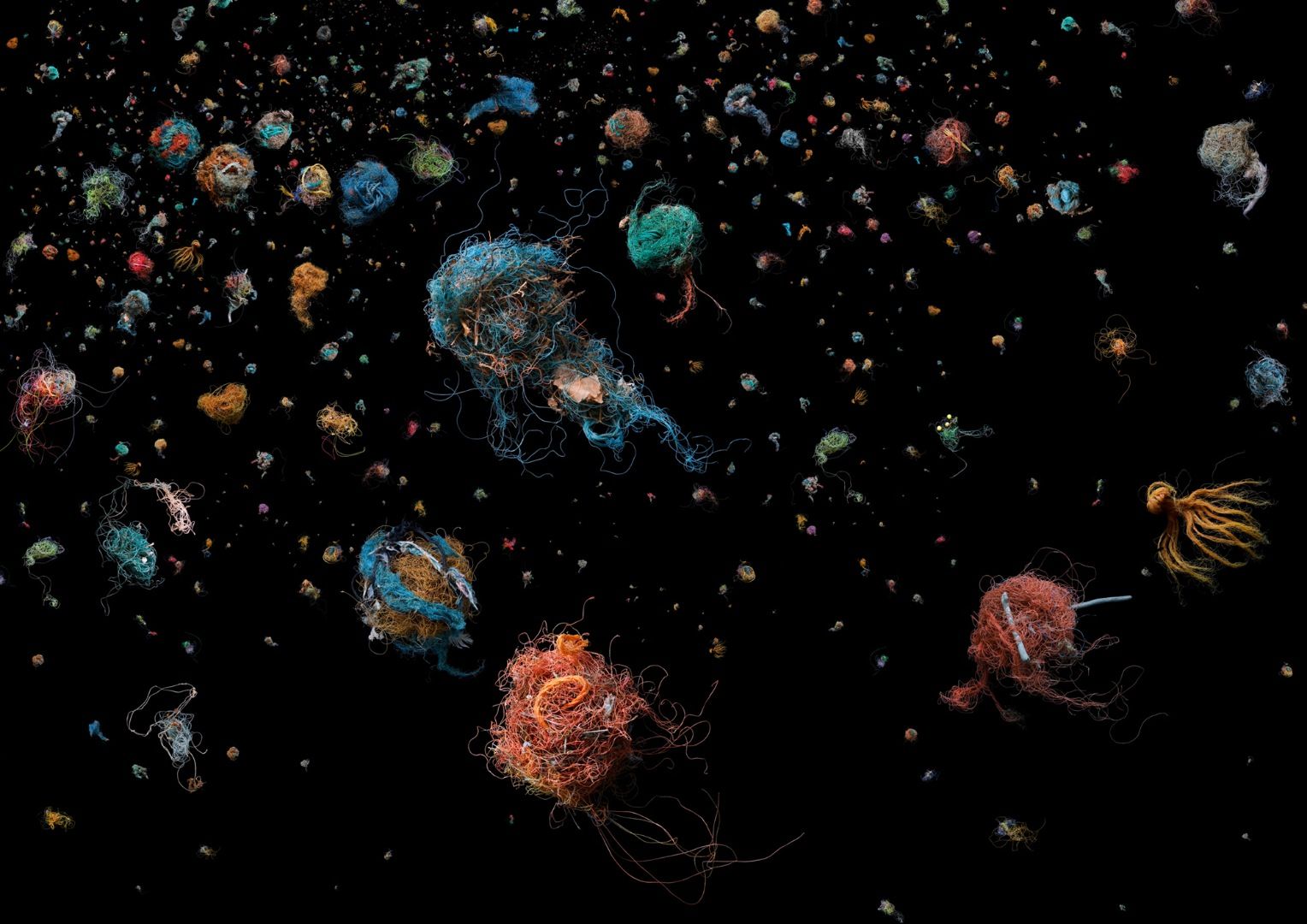
SOUP is a description given to plastic debris suspended in the sea, and with particular reference to the mass accumulation that exists in an area of The North Pacific Ocean known as the Garbage Patch. This book shows the11 series of images which aim to engage with, and stimulate an emotional response in the viewer by combining a contradiction between initial aesthetic attraction and social awareness. The sequence reveals a narrative concerning oceanic plastics from initial attraction and attempted ingestion, to the ultimate death of sea creatures, representing the disturbing statistics that dispersed plastics have no boundaries. Captions record the plastic ‘ingredients’ in each image providing the viewer with the realisation and facts of what exists in the sea. The book also shows a selection of sketchbook spreads representing the thought process behind selected images. All the plastics photographed have been salvaged from beaches around the world and represent a global collection of debris that has existed for varying amounts of time in the world’s oceans.
“The aim of my work is to engage with and stimulate an emotional response in the viewer by combining a contradiction between initial aesthetic attraction along with the subsequent message of awareness. The research process is a vital part of my development as the images I make are based on scientific fact, essential to the integrity of my work. The impact of marine plastic is an area I have documented for more than 9 years and am committed to pursuing
through visual interpretation, and in collaboration with science I hope it will ultimately lead to positive action in tackling this increasing environmental problem, which is currently of global
concern”.
